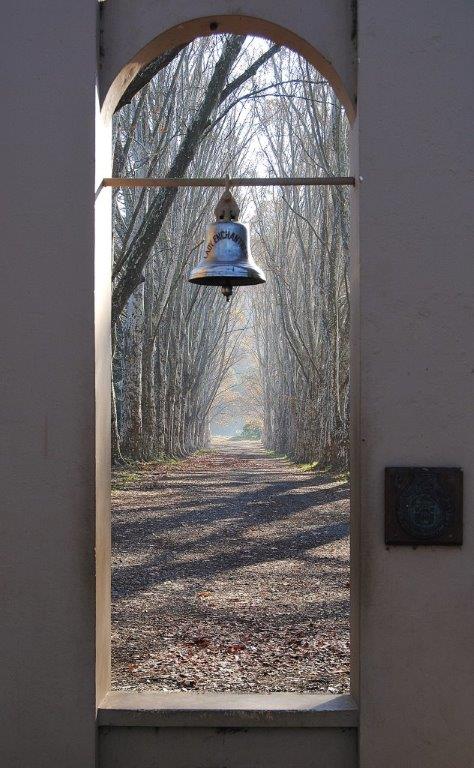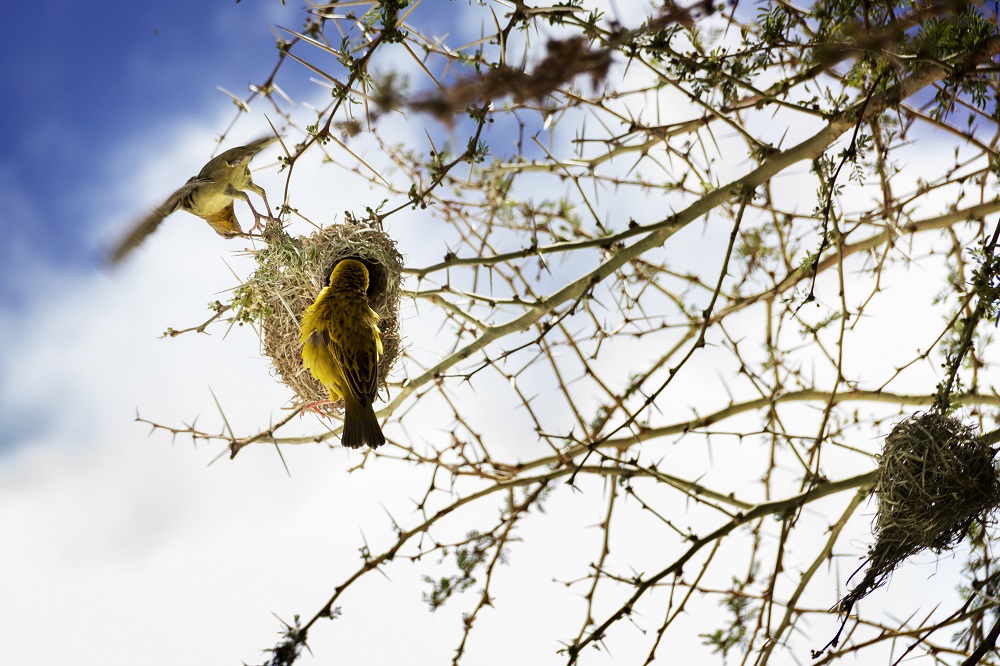Sacred Garden
- Published:
By Valerie Payn
‘The Lord God planted a garden eastward in Eden, and there He put the man whom He had formed. And out of the ground the Lord God made every tree grow that is pleasant to the sight and good for food. The tree of life was also in the midst of the garden, and the tree of knowledge of good and evil’. Genesis (2: 8-9).
 Kwazulu Natal botanical garden
Kwazulu Natal botanical garden
Gardens form an important part of many spiritual traditions. They often symbolize our human connection to the Divine, and are places that can support spiritual enlightenment and contemplation about life’s Divine mystery.
It seems the Great Creator may have considered gardens essential for human well-being. Christian, Islamic and Jewish traditions record that one of God’s first acts after creating Heaven and Earth was to create a garden called Eden as a refuge for the first humans. The Bible records that Jesus Christ often retreated to gardens to pray and meditate.
In Islamic traditions, gardens often symbolize Paradise and spiritual places of rest on our earthly journey. They also serve as private sanctuaries for family rest and recuperation from the hurly-burly of public life.
Eastern spiritual traditions often consider gardens as symbols of Divine power and creativity, where Humans divinely inspired creative spirit, the life forces of Nature, and Divine power mingle. Shinto Buddhists, for instance, see connections between humans and nature, embodied in the sacredness of natural places. They try and capture the essence of nature in their gardens and often use natural objects to symbolize the natural landscape.
Many cultures believe that certain plants have sacred or special healing powers. The amaMpondo of South Africa’s Eastern Cape province, for instance, celebrate the birth of twins by planting two Euphorbia behind the homestead. Folklore has it that good care of the Euphorbia will ensure good health for the twins. Many traditional African communities have strong food gardening traditions, and cultivate a variety of food and medicinal plants. Surrounded by ‘God’s Garden’, a wild landscape filled with a huge diversity of wild plants, African cultures have developed an extensive knowledge of the medicinal properties of indigenous plants. About 4 000 plant species are used as traditional medicines in Southern Africa.
Throughout the ages gardens in, or around, temples, monasteries, shrines, mosques, churches and private homes have provided places for contemplation, prayer, meditation, spiritual retreat, and relaxation. Sacred gardens have also played a conservation role, keeping alive plants and gardening knowledge that might otherwise have been lost. The prehistoric Gingko biloba tree, for instance, survives to this day only because it was considered sacred by Buddhist monks and extensively planted around Chinese monasteries.
Gardening can provide a ‘down to earth’ way of learning that by caring for Earth, we care for ourselves. The permaculture mantra “Care of people, care of planet, care of self” recognizes that individuals, communities of people and other living things, and the health of Earth itself, are all connected. To turn rich earth and find a worm, to plant a seed and watch it grow miraculously into food for a family, to smell the musk scent of rain after a dry spell is to touch the mysterious pulse of Creation and know that life is greater than oneself.
 Gardens can provide sanctuary to plants and creatures.
Gardens can provide sanctuary to plants and creatures.
But in a world facing ‘an extinction crisis’, gardens have another important role to play. They can provide sanctuary to plants and creatures whose habitats are increasingly being destroyed by human development. Extensive links of eco-friendly gardens and ‘green corridors’ planned into urban areas serve an important conservation role by providing migration passages and refuge for wild plants and animals.
The way we choose to garden, that is our gardening practices, have a huge impact on how effective gardens are in playing a conservation role. Not all our gardening habits are environmentally friendly. In the United States of America, for example, gardeners use more ecologically damaging pesticides, herbicides and chemical fertilizers per acre of land than any other industry, including commercial agriculture (U.S. Environmental Protection Agency (EPA) 2004). The good citizens of the USA are not the only ones guilty of environmentally damaging garden practices. In South Africa, a trip to any garden centre or outdoor store often shows rows of shelves groaning under the weight of chemical fertilizers, pesticides, fungicides, herbicides and all sorts of other ‘cides promising quick-fix solutions to any gardening problem. Why would the stores bother to stock all those toxins if there were not plenty of willing customers?
Yet gardening need not be ecologically degrading. We can create a garden with a healthy ecosystem by adopting ecologically friendly ways of gardening. This can change our garden from an environmentally damaging ‘pretty green desert’ into a life enhancing mini-conservancy. Our gardens can truly become sacred places that keep life, rather than destroy life.
Here are some tips to help you cultivate an eco-friendly garden and help fulfil our sacred mission to care for Earth and all its inhabitants.
- Work with the local natural systems in place, rather than trying to fight against nature.
- Take up organic methods of gardening.
- Grow a diverse range of plants that provide habitat for wild creatures.
- Grow indigenous plants.
- Avoid using pesticides and other environmentally harmful products.
How eco-friendly is your garden? Take this quiz
An Ecological Gardeners Handbook by Valerie Payn explains how gardeners can use natural processes to create gardens with healthy, vibrant, productive eco-systems. Each chapter focuses on one aspect of creating a vibrant garden eco-system, and provides gardeners with a range of simple, practical steps to follow.
Some of the topics covered by An Ecological Gardeners Handbook include:
- The benefits of creating a healthy garden eco-system.
- The basic qualities of healthy garden eco-systems.
- Gardening to cope with extreme conditions.
- Creating gardens that suit different climate zones.
- Natural was of improving soil fertility, and managing garden pests and diseases.
- Pollinator friendly gardening.
- Transitioning a garden towards more eco-friendly practices.
An Ecological Gardeners Handbook is available worldwide from most major ebook distributors.
Who we are

SAFCEI (Southern African Faith Communities’ Environment Institute) is a multi-faith organisation committed to supporting faith leaders and their communities in Southern Africa to increase awareness, understanding and action on eco-justice, sustainable living and climate change.
Featured Articles
-

South Africa: Who Ends Up Paying If DMRE Cooks the Price of Nuclear Power?
-

South Africa’s nuclear energy expansion plans continue to draw criticism, environmental NGOs chew over legal challenge
-

Earthlife Africa and SAFCEI respond to latest unsettling nuclear news regarding the ministerial determination
-

Open Wing Alliance Africa (Virtual) Summit 2023
-

The Green Connection and SAFCEI respond to energy minister's divisive and deflecting comments
-

Job Vacancy: FLEAT Coordinator







